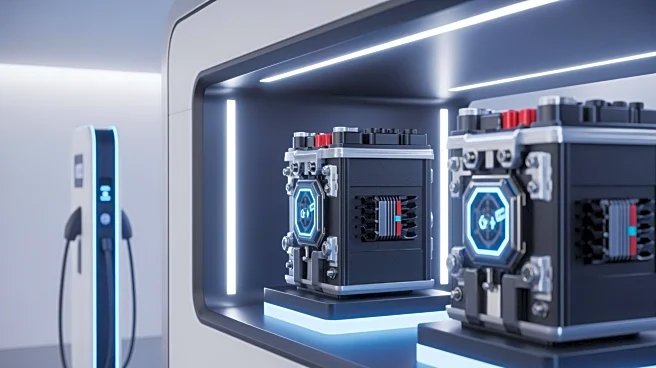What's Happening?
Owners of older Nissan Leaf electric vehicles are finding ways to extend the range of their cars by upgrading to new battery packs. A specific case involves replacing the original 24 kWh battery with a 50
kWh pack from VIVNE, which can potentially increase the vehicle's range to approximately 180-200 miles. This upgrade is seen as a cost-effective alternative to purchasing a new electric vehicle, especially for those who wish to avoid the higher costs associated with newer models. The new battery packs also address previous issues with battery thermal management, offering a more reliable performance for extended use.
Why It's Important?
This development is significant for the electric vehicle market as it provides a viable option for extending the life and utility of older EV models. By upgrading batteries, owners can continue using their vehicles without the need for significant investment in new cars, thus promoting sustainability and reducing waste. This approach also highlights the potential for aftermarket solutions to enhance the performance of existing EVs, which could encourage more consumers to consider electric vehicles as a long-term investment. Additionally, the ability to repurpose old batteries for home energy storage further underscores the versatility and environmental benefits of EV technology.
Beyond the Headlines
The trend of upgrading older EVs with new battery packs could lead to a shift in consumer behavior, where maintaining and enhancing existing vehicles becomes more common. This could impact the automotive industry's focus on new car sales, prompting manufacturers to consider offering official upgrade options. The repurposing of old batteries for home energy storage also opens up new markets and applications for used EV components, contributing to a circular economy. These developments may influence future policies and incentives aimed at promoting sustainable transportation and energy solutions.








